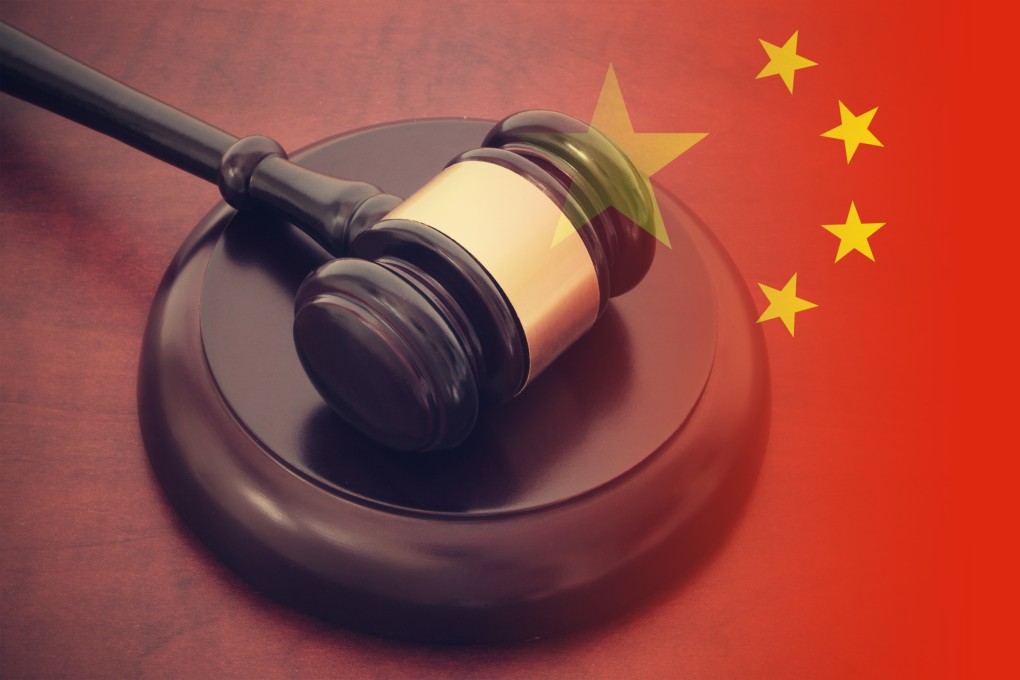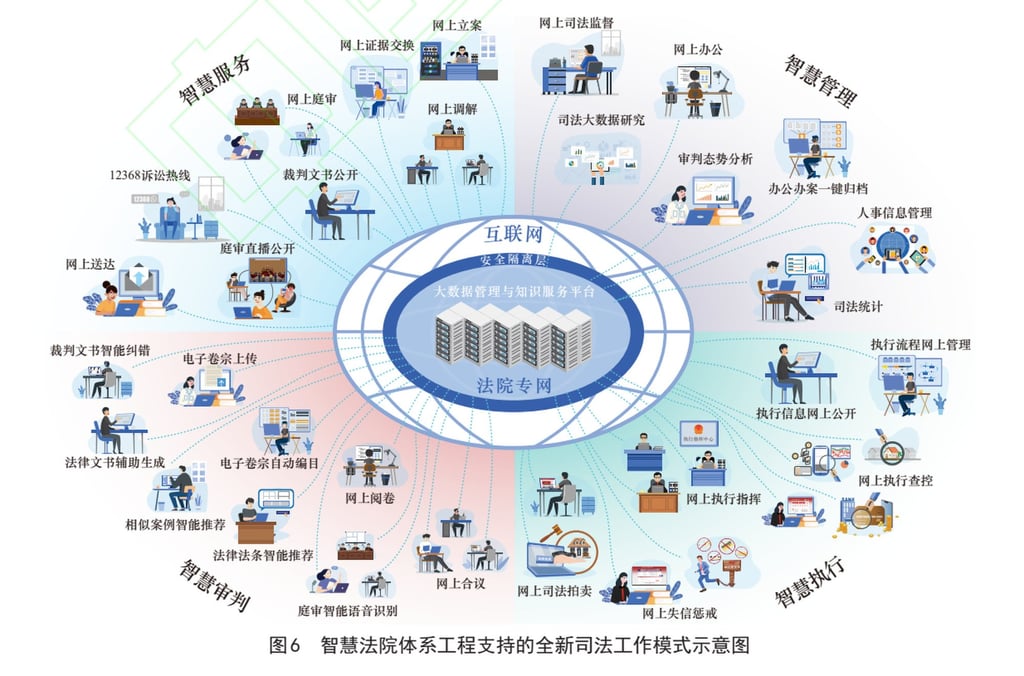China’s court AI reaches every corner of justice system, advising judges and streamlining punishment
- Smart court’s electronic reach allows the system to access police, prosecutor and government databases and integrate with China’s social credit system
- Chinese law professor warns, ‘We must be alert to the erosion of judicial power by technology companies and capital’

“The smart court SoS (system of systems) now connects to the desk of every working judge across the country,” said Xu Jianfeng, director of the supreme court’s information centre in a report published on Tuesday in Strategic Study of CAE, an official journal run by the Chinese Academy of Engineering.

The journal report said AI had cut a judge’s average workload by over a third, and saved Chinese citizens 1.7 billion working hours from 2019 to 2021.
It also said society had saved more than 300 billion yuan (US$45 billion) during the same period – equal to about half of total lawyers’ fees in China last year.
As an unprecedented engineering project, “the wide application of the smart court system has made a significant contribution to the judicial advancement of human civilisation”, Xu and his colleagues said.
AI has not always been welcome in a court, according to some judges.